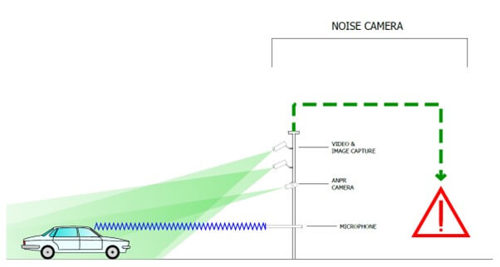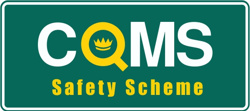We are all familiar with speed cameras, with many finding themselves on the wrong side of them at some point in their time behind the wheel, but to most people, the idea of noise cameras is likely a new one. However, they are something that could become much more familiar in the near future following an expanded trial that, if successful, means noise cameras could be rolled out widely in the UK.
What are Noise Cameras?
We are all familiar with speed cameras, with many finding themselves on the wrong side of them at some point in their time behind the wheel, but to most people, the idea of noise cameras is likely a new one. However, they are something that could become much more familiar in the near future following an expanded trial that, if successful, means noise cameras could be rolled out widely in the UK.
This issue is of clear concern to the public, with a poll from February 2022 revealing that 71% of people asked support noise cameras in cities, and 67% support them in rural areas. The trial involves the rolling out of noise cameras in Bradford, Bristol, Great Yarmouth, and Birmingham in late 2022. These specific locations were selected through a government-backed competition in April, aimed at identifying some of the worst-affected areas.
What is the Purpose of Noise Cameras?
The audio taken from these cameras will be used as part of a “digital package of evidence” according to the Department for Transport (DfT). This will aid law enforcement in their decision to issue fines to those who use illegally modified exhausts or break legal noise limits. They could be used to tackle issues such as excessive revving whilst stationary, or people driving dangerously in built-up areas.
How Do Noise Cameras Work?
Noise cameras will take a digital image just as a speed camera does, however, instead of being set off by speed, noise cameras pick up sound levels using onboard microphones. The noise cameras can record noise accurately enough that they should be able to identify exactly which vehicle was responsible for the excess noise, be that through excessive revving or an illegal exhaust, and distinguish these noises from the wider environment. This noise can then be matched up to the vehicle using the image of the number plate taken by the camera.
 Image Credit: Gov.UK, reproduced by Mayer Brown Ltd
Image Credit: Gov.UK, reproduced by Mayer Brown Ltd
The Future of Noise Cameras
Assuming the expanded trial is a success, the government says that noise cameras could be rolled out more widely, with their locations determined by the impact of noisy vehicles on local people. Notwithstanding this, it is acknowledged that there will be a significant amount of manual intervention and human involvement in the early stages of the roll out. The aim of this project, to which the government has pledged £300,000 of investment, is to create quieter, more peaceful streets nationwide. Whether this outcome materialises is yet to be seen, but noise cameras could soon become a much more familiar feature of our national highway network.
At Mayer Brown our team of experts have a proven track record of supporting our clients’ development aspirations. For more information about this article, or if you require a noise and vibration assessment, please contact us on 01483 750508, or use our online form.
References
https://www.ioa.org.uk/news/noise-cameras-our-roads-%E2%80%93-new-ioa-briefing






